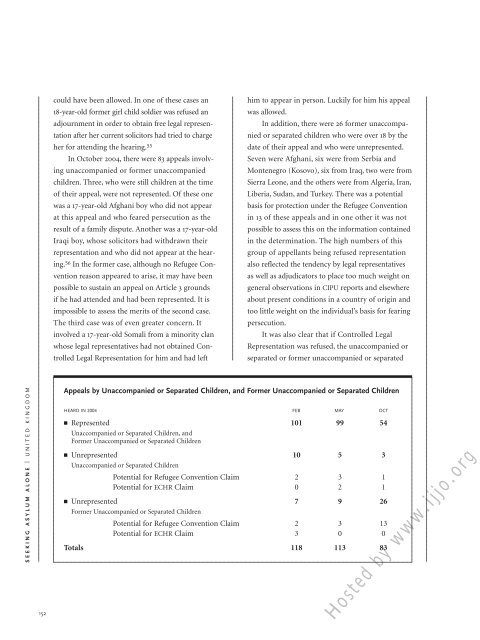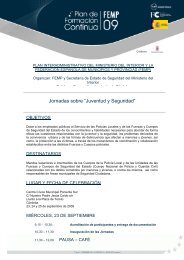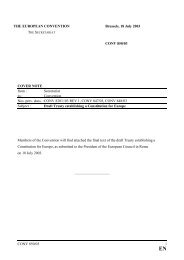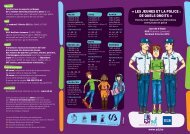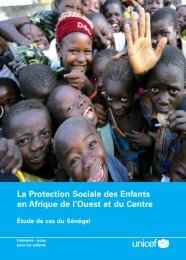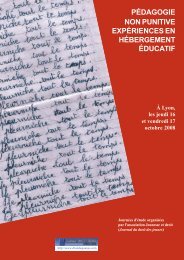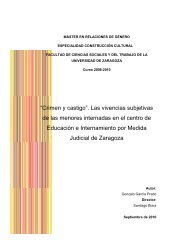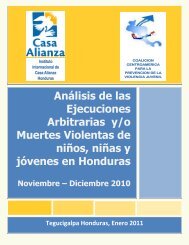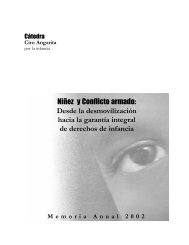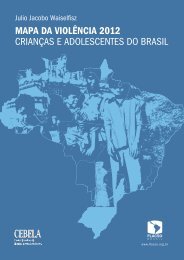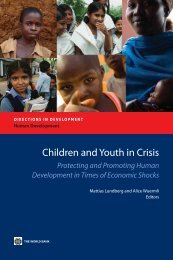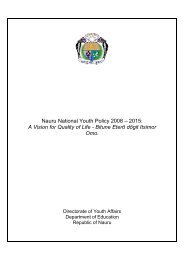Hosted by www.ijjo.org
Hosted by www.ijjo.org
Hosted by www.ijjo.org
Create successful ePaper yourself
Turn your PDF publications into a flip-book with our unique Google optimized e-Paper software.
could have been allowed. In one of these cases an<br />
18-year-old former girl child soldier was refused an<br />
adjournment in order to obtain free legal representation<br />
after her current solicitors had tried to charge<br />
her for attending the hearing. 55<br />
In October 2004, there were 83 appeals involving<br />
unaccompanied or former unaccompanied<br />
children. Three, who were still children at the time<br />
of their appeal, were not represented. Of these one<br />
was a 17-year-old Afghani boy who did not appear<br />
at this appeal and who feared persecution as the<br />
result of a family dispute. Another was a 17-year-old<br />
Iraqi boy, whose solicitors had withdrawn their<br />
representation and who did not appear at the hearing.<br />
56 In the former case, although no Refugee Convention<br />
reason appeared to arise, it may have been<br />
possible to sustain an appeal on Article 3 grounds<br />
if he had attended and had been represented. It is<br />
impossible to assess the merits of the second case.<br />
The third case was of even greater concern. It<br />
involved a 17-year-old Somali from a minority clan<br />
whose legal representatives had not obtained Controlled<br />
Legal Representation for him and had left<br />
him to appear in person. Luckily for him his appeal<br />
was allowed.<br />
In addition, there were 26 former unaccompanied<br />
or separated children who were over 18 <strong>by</strong> the<br />
date of their appeal and who were unrepresented.<br />
Seven were Afghani, six were from Serbia and<br />
Montenegro (Kosovo), six from Iraq, two were from<br />
Sierra Leone, and the others were from Algeria, Iran,<br />
Liberia, Sudan, and Turkey. There was a potential<br />
basis for protection under the Refugee Convention<br />
in 13 of these appeals and in one other it was not<br />
possible to assess this on the information contained<br />
in the determination. The high numbers of this<br />
group of appellants being refused representation<br />
also reflected the tendency <strong>by</strong> legal representatives<br />
as well as adjudicators to place too much weight on<br />
general observations in CIPU reports and elsewhere<br />
about present conditions in a country of origin and<br />
too little weight on the individual’s basis for fearing<br />
persecution.<br />
It was also clear that if Controlled Legal<br />
Representation was refused, the unaccompanied or<br />
separated or former unaccompanied or separated<br />
SEEKING ASYLUM ALONE | UNITED KINGDOM<br />
152<br />
Appeals <strong>by</strong> Unaccompanied or Separated Children, and Former Unaccompanied or Separated Children<br />
HEARD IN 2004 FEB MAY OCT<br />
■ Represented 101 99 54<br />
Unaccompanied or Separated Children, and<br />
Former Unaccompanied or Separated Children<br />
■ Unrepresented 10 5 3<br />
Unaccompanied or Separated Children<br />
Potential for Refugee Convention Claim 2 3 1<br />
Potential for ECHR Claim 0 2 1<br />
■ Unrepresented 7 9 26<br />
Former Unaccompanied or Separated Children<br />
Potential for Refugee Convention Claim 2 3 13<br />
Potential for ECHR Claim 3 0 0<br />
Totals 118 113 83<br />
<strong>Hosted</strong> <strong>by</strong> <strong>www</strong>.<strong>ijjo</strong>.<strong>org</strong>


